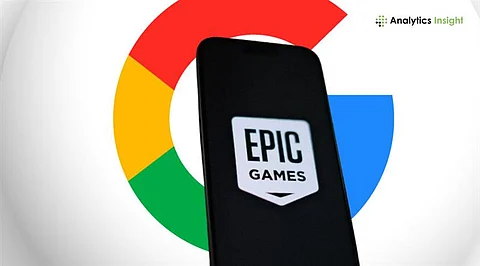Business
Epic Games and Google End Five-Year Legal Conflict Over App Store

Epic Games and Google have settled a long-standing legal dispute regarding Android’s app store policies, marking a pivotal moment for app developers and digital marketplaces. This agreement, described as a “comprehensive settlement,” was confirmed in a joint filing made in a federal court in San Francisco.
The conflict dated back five years, stemming from Epic’s lawsuits against both Google and Apple, initiated in 2020. The video game company, known for its popular title **Fortnite**, aimed to challenge the exclusive payment processing systems that charged developers commissions ranging from **15% to 30%** on in-app transactions.
In a significant victory for Epic Games, a federal appeals court upheld a jury verdict that found Google’s Android app store practices to be monopolistic. This ruling permitted a federal judge to implement changes intended to broaden consumer options. Furthermore, in a decisive move last month, the **US Supreme Court** declined to grant Google protection from a judge’s order that mandated a revamp of its app store.
Details of the Settlement Agreement
While the specific terms of the settlement remain undisclosed and await the approval of **US District Judge James Donato**, both companies have highlighted key aspects of their agreement. Sameer Samat, President of the Android ecosystem at Google, expressed optimism about the changes. He stated, “Together with Epic Games, we have filed a proposed set of changes to Android and Google Play that focus on expanding developer choice and flexibility, lowering fees, and encouraging more competition, all while keeping users safe.”
Tim Sweeney, Founder and CEO of Epic Games, echoed this sentiment, emphasizing the potential for innovation. He remarked, “Google has made an awesome proposal, subject to court approval, to open up Android in the US Epic v Google case and settle our disputes.” Sweeney contrasted this settlement with Apple’s model, arguing it would foster competition by allowing for multiple app stores.
The proposed plan, if accepted, would replace the **October 2024** injunction, which aimed to dismantle the barriers preventing competition in the app store space. Under the new terms, Google would be limited to charging a **9% fee** for non-game items, such as cosmetic upgrades, and a **20% fee** for bundled items that include in-game purchases.
Implications for Developers and Users
The resolution of this legal battle holds significant implications for Android developers and users alike. Epic Games will now have the opportunity to launch its own app store on the Android platform, paying minimal fees to Google. This aligns with the company’s original objective when it initiated lawsuits against both Apple and Google.
The joint filing indicates that this agreement aims to create a more vibrant and competitive environment for both users and developers. The changes could redefine how apps are sold, monetized, and delivered, potentially revolutionizing the functionality of the application ecosystem.
This settlement demonstrates a shift in the landscape of app marketplaces, as it opens the door for increased competition and innovation while addressing the concerns previously raised by developers about high commission fees. As the digital economy continues to evolve, the outcomes of this agreement will likely be closely monitored by industry stakeholders and consumers alike.
-

 Science3 weeks ago
Science3 weeks agoIROS 2025 to Showcase Cutting-Edge Robotics Innovations in China
-

 Lifestyle3 weeks ago
Lifestyle3 weeks agoStone Island’s Logo Worn by Extremists Sparks Brand Dilemma
-

 World3 weeks ago
World3 weeks agoBravo Company Veterans Honored with Bronze Medals After 56 Years
-

 Politics3 weeks ago
Politics3 weeks agoJudge Considers Dismissal of Chelsea Housing Case Citing AI Flaws
-

 Health3 weeks ago
Health3 weeks agoStartup Liberate Bio Secures $31 Million for Next-Gen Therapies
-

 Health3 weeks ago
Health3 weeks agoTop Hyaluronic Acid Serums for Radiant Skin in 2025
-

 Sports3 weeks ago
Sports3 weeks agoMel Kiper Jr. Reveals Top 25 Prospects for 2026 NFL Draft
-

 Top Stories3 weeks ago
Top Stories3 weeks agoIndonesia Suspends 27,000 Bank Accounts in Online Gambling Crackdown
-

 World3 weeks ago
World3 weeks agoHoneywell Predicts Record Demand for Business Jets Over Next Decade
-

 Sports3 weeks ago
Sports3 weeks agoYamamoto’s Mastery Leads Dodgers to 5-1 Victory in NLCS Game 2
-

 Science3 weeks ago
Science3 weeks agoArizona State University Transforms Programming Education Approach
-

 Politics3 weeks ago
Politics3 weeks agoNew Jersey Voters Urged to Register Ahead of November Election









